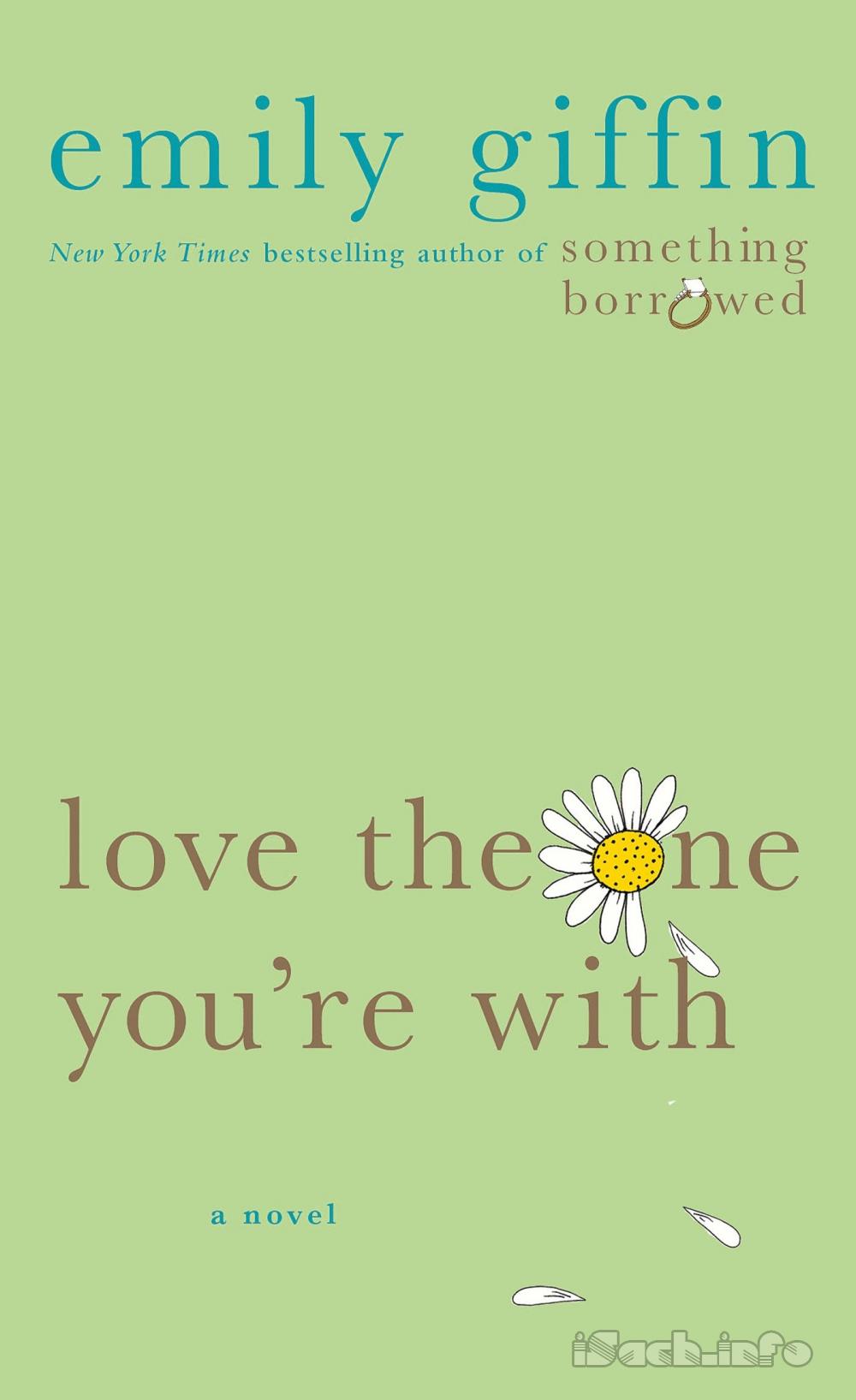Chapter 19
M
argot cries when we tell her that we're making an offer on the house, and my mother-in-law ups the ante even further by declaring that the news is the answer to her prayers. Now granted, Margot is an easy cry even when she's not pregnant, tearing up at long-distance commercials or a few bars of "Pomp and Circumstance," and Stella prays over a whole lot less than her beloved son returning home after so many years "up North." But still. There really is no turning back after those reactions—you just don't screw around with familial heartstrings.So as spring comes to New York, my split-second, gut decision made over toaster waffles, no sleep, and a large dose of guilt takes on a crazy forward motion of its own.
Fortunately, once Andy gives jubilant notice at his law firm, he, too, seems to have at least ambivalent feelings about our impending move, although his focus is more on the big picture and has an almost merry abandon to it—sort of the same way that high school seniors barrel toward prom and graduation. He furiously makes plans with our closest friends, schedules final dinners at our favorite restaurants, and snaps up tickets to Broadway shows we've been meaning to see for ages. One Saturday morning, he even insists that we take a ferry out to the Statue of Liberty—a landmark I vowed to only ever admire from an airplane window, almost as a point of pride. Then, as we endure packs of tourists, misty rain, and a brutally monotone guide, Andy encourages me to snap photos of the view, so that we can display the prints in our new home. I humor him, but can't help thinking that a framed shot of New York Harbor, no matter how spectacular (if I do say so myself), isn't going to provide much solace when I'm missing the intangible energy of New York.
To this point, it's the little things that get to me the most as we wind down our affairs in the city and hurtle toward our June closing date. It's the rich fabric of my daily life—things that barely registered before but that now feel sentimental. It's my walk to work and the silent camaraderie of other commuters swelling in the crosswalks around me. It's Sabina and Julian's spirited banter in our workroom, and the pungent aroma of Oscar's printing press. It's our dry cleaner's deep frown lines as he determinedly knots the plastic around Andy's shirts and then tells us to have a nice day in his Turkish accent, and my Korean manicurist's chipper command to "pick polish," even though she must know by now that I always bring my own. It's the sway of the subway careening efficiently along the tracks, and the satisfaction of flagging down a cab on a bustling weekend night in the Village. It's the burgers at P.J. Clarke's, the dim sum at Chinatown Brasserie, and the bagels at my corner bodega. It's knowing that when I walk out of our brown-stone, I will see something new every single day. It's the diversity of choices and people, the raw urban beauty, the endless hum of possibility everywhere.
Underscoring all of this is Leo—his constant presence in my mind, along with the troubling realization that I deeply associate him with the city and vice versa. So much so, in fact, that leaving New York feels an awful lot like leaving him.
Not once do I contact him, though. Not even when I think of at least a half-dozen near-perfect, work-related excuses and just as many clever rationalizations about why a little more closure might be a good thing for everyone. Not even when the temptation is so strong that it actually frightens me—in the way that I imagine I would feel about cocaine if I ever tried it.
Rather, I steadfastly cling to the lofty notion of right versus wrong, black versus white, and one hundred percent loyalty to Andy. As the ultimate insurance policy, I make a point to keep him nearby whenever possible, which means pretty much all the time once he is freed from his firm. I encourage him to accompany me to work or my shoots, tag along with him to the gym, and plan all our meals together. I constantly initiate physical contact with him—both in our bedroom at night and in small ways out in public. I tell him often that I love him, but never in an automatic, rote way. Rather, I really think about the words, what they mean. Love as a verb. Love as a commitment.
All the while, I tell myself that I'm almost to the finish line. My emotions will soon run their course, and things will return to normal—or at least the way they were before that moment in the intersection. And, if that doesn't happen before we leave the city, it will most certainly happen in Atlanta, in a brand-new context, far from Leo.
But as the days pass, and our departure approaches, I find myself wondering what exactly normal ever was. Were things normal when Andy and I started to date? Were they normal by the time we got engaged or walked down the aisle? Was I ever truly over Leo? At one time I was sure that the answer was yes. But if seeing him again—and merely touching his hand—could peel back so many layers of my heart, then did I ever stop loving him the way you're supposed to stop loving everyone but the one you're with? If the answer is no, then will the lapse of time or a change of geography really fix the problem? And regardless of the answer, what does the mere question say about my relationship with Andy?
Making matters more upsetting is the strange, vague sense that this emotional terrain isn't completely foreign—that I experienced some of these same feelings a long time ago when my mother died. The parallels are by no means perfect as there is no tragic element in leaving New York or not talking to Leo. But, in some unsettling way that is difficult to precisely pinpoint, there is a distinct overlap.
So one late night when Andy is out with the guys, I cave and call my sister, hoping that I will find the right opening—and the right words—to convey what I'm feeling without elevating Leo's importance or disrespecting our mother's memory.
Suzanne answers in a good mood—and tells me Vince is out with the guys, too, which in his case is par for the course. We make small talk for a few minutes, and then I indulge her complaints of the week, mostly Vince related, with a few colorful flight attendant tales in the mix. My favorite features a crazy old woman in first class who spilled Bloody Mary mix not once, not twice, but three times on the passenger beside her, and then became belligerent when Suzanne refused to serve her a fourth drink.
"Belligerent how?" I say, always enjoying—and marveling over—the in-flight drama.
"She called me a bitch. Good times, huh?"
I laugh and ask her what she did next, knowing full well that there will be some sort of retaliation involved.
"I had a few marshals meet her drunk ass at the gate."
We both burst out laughing.
"She was right. You are a bitch," I say.
"I know," she says. "It's my calling."
We laugh again, and a beat later, Suzanne comes right out and asks me if I've heard from Leo.
I consider telling her about our flight, but decide that it is something I will forever keep private, sacred. Instead, I just say no, sighing so loudly that it invites a follow-up.
"Uh-oh," she says. "What's up?"
I cast about for a few seconds—and then confess that ever since L.A. I continue to miss Leo in a way that hasn't really subsided at all. That something about my mood reminds me of "that one winter"—which is the veiled way we often refer to Mom's death when we're not in the mood to fully revisit our grief.
"Whoa, Ell," she says. "Are you comparing not talking to Leo to Mom dying?"
I quickly and vehemently say no and then add, "Maybe I'm just melancholy about leaving the city... all the changes."
"So... what? You're comparing leaving New York to death?"
"No. Not that exactly either," I say, realizing that I shouldn't have bothered to try to convey such a subtle feeling, even to my sister.
But in Suzanne fashion, she presses me to explain. I think for a second and then tell her that it's more the sense of impending finality, and that as much as I prepare myself for what is coming next, I really don't know what to expect. "And there is this fear packed in the waiting period," I say tentatively. "Like with Mom... We knew for weeks that the end was really near. Nothing about her death was a surprise. And yet... it still felt like a surprise, didn't it?"
Suzanne whispers yes, and for a moment I know we are both silently remembering that day when the school guidance counselor appeared in our respective classrooms and then waited with us, outside by the flagpole and an exhaust-covered drift of snow, until our father arrived to pick us up, and take us home to her for the last time.
"And then after that," I say, commanding myself not to cry or conjure any other visual specifics of that horrible day or the ones that followed. "I just felt desperate to finish the school year, get in a new routine... a new place where I wasn't always reminded of Mom..."
"Yeah," Suzanne says. "Going away to camp that summer did sort of help."
"Right," I say, thinking that was part of my motivation to look at colleges far from Pittsburgh, in places Mom never visited or talked about, with people who didn't know that I was motherless. I clear my throat and continue, "But at the same time, as much as I wanted to get away from the house and all of Mom's things and Dad's tears—and even you—I also felt scared that once I got away, or turned the calendar, or did anything at all differently than the way we did things with her, that we would be losing her all the faster. That we would almost be... erasing her."
"I know exactly what you mean," Suzanne says. "Exactly... But... Ellie..."
"What?" I ask softly, knowing that a difficult question is likely coming my way.
Sure enough, Suzanne says, "Why don't you want to erase Leo?"
I think for a long minute, silence filling the airwaves. But as hard as I try, I can't come up with a good answer—or for that matter, any answer at all.



 ePub
ePub A4
A4